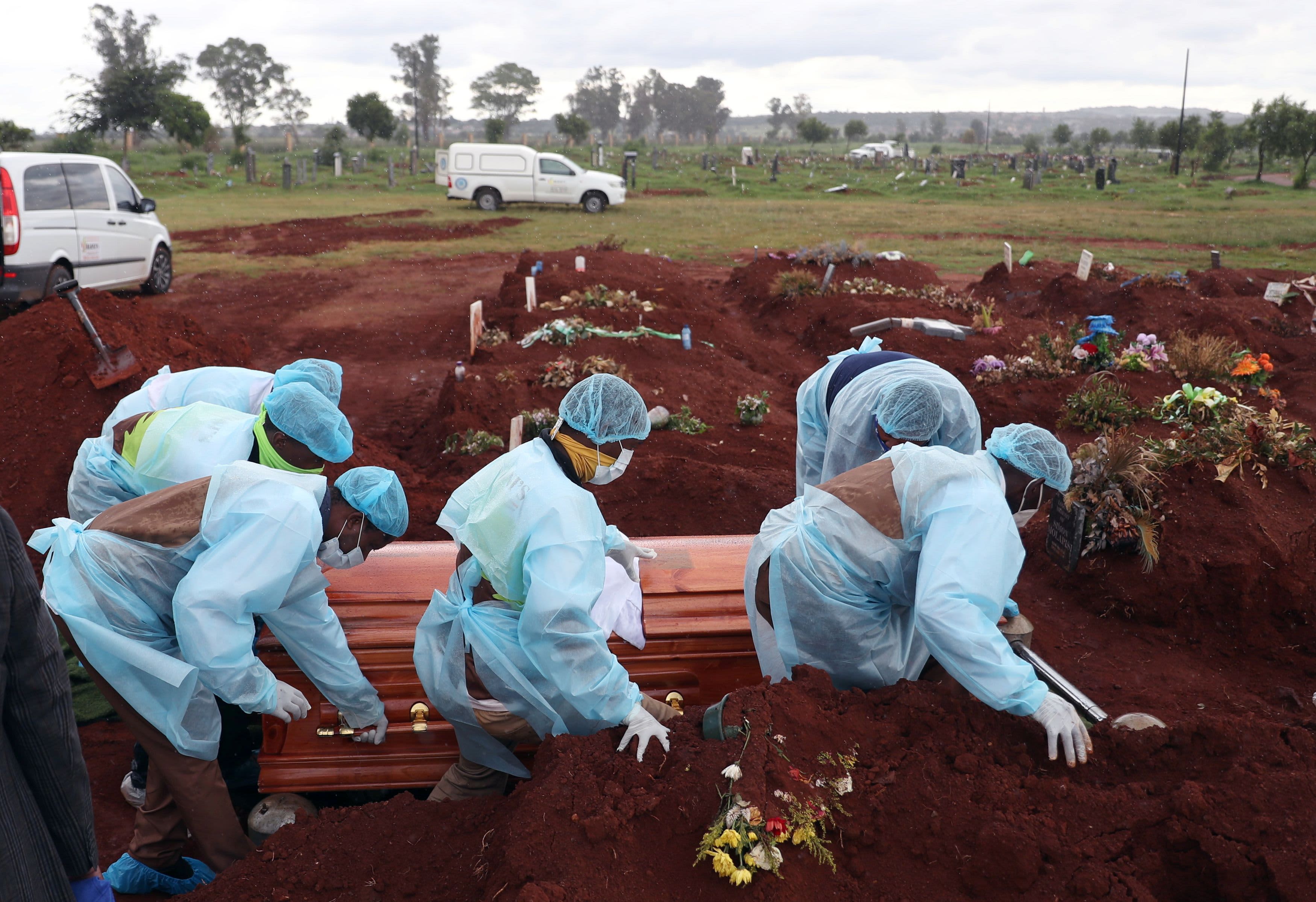WHO says Covid is spreading faster than the global distribution of vaccines

Funeral workers wearing personal protective equipment carry a casket during the burial of a COVID-19 victim, amid a nationwide coronavirus disease (COVID-19) lockdown, at the Olifantsvlei cemetery, south-west of Joburg, South Africa January 6, 2021.
Siphiwe Sibeko | Reuters
The global spread of Covid-19 is moving faster than the global distribution of vaccines, World Health Organization officials said Monday.
They attributed transmission rates to new variants like Alpha and Delta, which have been shown to be more contagious.
“That means the risks have increased for people who are not protected, which is most of the world’s population,” Tedros Adhanom Ghebreyesus, director-general of the WHO, said during a press briefing Monday.
While new cases of the virus continue to decline worldwide, the number of deaths have not been declining at the same rate, he said. More than 3.8 million people have died from Covid across the world since the beginning of the pandemic.
A person receives a dose of the Pfizer BioNTech vaccine at a vaccination centre for those aged over 18 years old at the Belmont Health Centre in Harrow, amid the coronavirus disease (COVID-19) outbreak in London, Britain, June 6, 2021.
Henry Nicholls | Reuters
New cases have declined for seven weeks in a row, the longest streak of declines the world has seen since the beginning of the pandemic. But the number of deaths reported this week are still similar to those reported last week, he said.
“While weekly cases are at their lowest since February, deaths are not falling as quickly,” Tedros said. “The global decline masks a worrying increase in cases and deaths in many countries.”
Countries in Africa are experiencing higher mortality rates among those suffering from Covid than other countries, he said. The higher mortality rates are especially concerning because African countries have reported fewer cases than most other regions.
African countries also have the least access to vaccines, diagnostics and oxygen supplies, highlighting the effects of medical inequity that global health officials have warned about.
“There are enough doses of vaccines globally to drive down transmission and save many lives if they’re used in the right places for the right people,” Tedros said.
The G7 countries have pledged distribution of 870 million vaccine doses around the world, but WHO says we need more.
“This is a big help, but we need more and we need them faster. More than 10,000 people are dying every day,” Tedros said.




